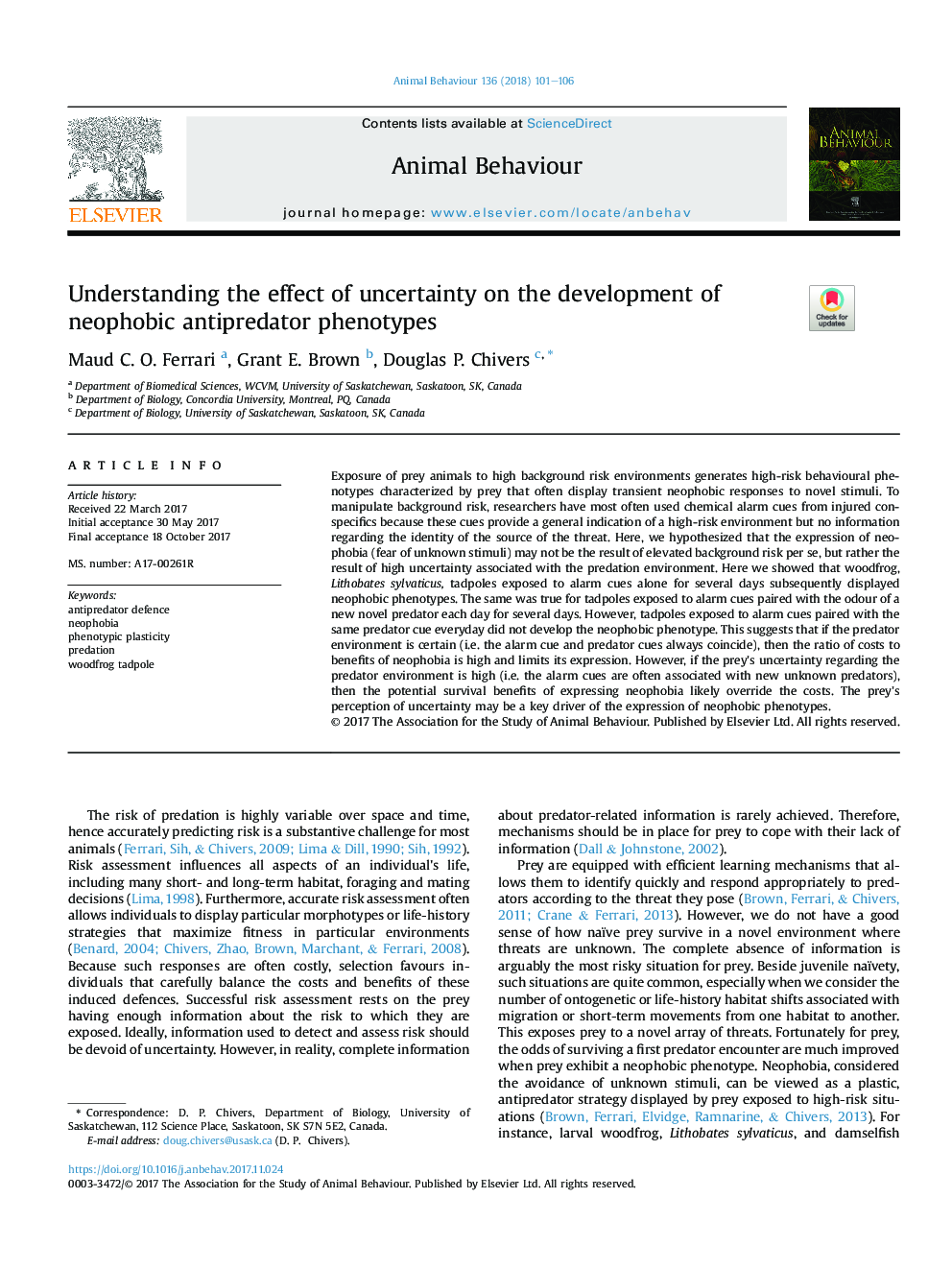| کد مقاله | کد نشریه | سال انتشار | مقاله انگلیسی | نسخه تمام متن |
|---|---|---|---|---|
| 8488681 | 1552192 | 2018 | 6 صفحه PDF | دانلود رایگان |
عنوان انگلیسی مقاله ISI
Understanding the effect of uncertainty on the development of neophobic antipredator phenotypes
دانلود مقاله + سفارش ترجمه
دانلود مقاله ISI انگلیسی
رایگان برای ایرانیان
کلمات کلیدی
موضوعات مرتبط
علوم زیستی و بیوفناوری
علوم کشاورزی و بیولوژیک
علوم دامی و جانورشناسی
پیش نمایش صفحه اول مقاله

چکیده انگلیسی
Exposure of prey animals to high background risk environments generates high-risk behavioural phenotypes characterized by prey that often display transient neophobic responses to novel stimuli. To manipulate background risk, researchers have most often used chemical alarm cues from injured conspecifics because these cues provide a general indication of a high-risk environment but no information regarding the identity of the source of the threat. Here, we hypothesized that the expression of neophobia (fear of unknown stimuli) may not be the result of elevated background risk per se, but rather the result of high uncertainty associated with the predation environment. Here we showed that woodfrog, Lithobates sylvaticus, tadpoles exposed to alarm cues alone for several days subsequently displayed neophobic phenotypes. The same was true for tadpoles exposed to alarm cues paired with the odour of a new novel predator each day for several days. However, tadpoles exposed to alarm cues paired with the same predator cue everyday did not develop the neophobic phenotype. This suggests that if the predator environment is certain (i.e. the alarm cue and predator cues always coincide), then the ratio of costs to benefits of neophobia is high and limits its expression. However, if the prey's uncertainty regarding the predator environment is high (i.e. the alarm cues are often associated with new unknown predators), then the potential survival benefits of expressing neophobia likely override the costs. The prey's perception of uncertainty may be a key driver of the expression of neophobic phenotypes.
ناشر
Database: Elsevier - ScienceDirect (ساینس دایرکت)
Journal: Animal Behaviour - Volume 136, February 2018, Pages 101-106
Journal: Animal Behaviour - Volume 136, February 2018, Pages 101-106
نویسندگان
Maud C.O. Ferrari, Grant E. Brown, Douglas P. Chivers,